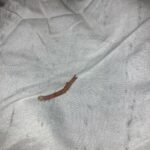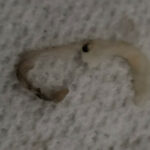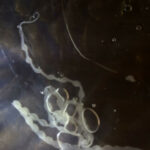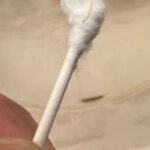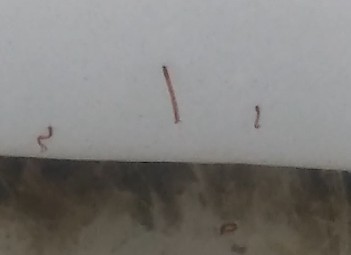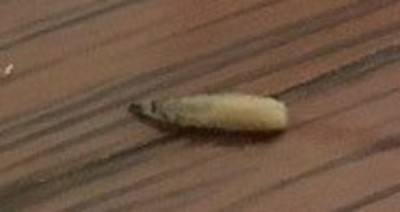Kittens may become infected with worms through a number of hosts such as the mother, other live animals, dead animals, and fecal matter. No matter how your kitten becomes infected with worms, he must be treated immediately to avoid any serious problems. Unlike adult cats, that are full grown and better equipped to handle an infection, kittens’ systems are fragile, so they will not have the same reaction to a foreign body as an adult cat would. As such, treating kitten worms should only be done under a vets care.
The most common types of kitten worms are tapeworms, roundworms, and hookworms.
Tapeworms
Tapeworms live in a cat’s digestive tract absorbing much needed nutrients from the body. They infect an animal through infected fleas, uncooked meat or when a cat eats other animals such as rodents. Tapeworm eggs are eliminated through an infected cat’s stool.
Evidence of the worm’s presence can be seen in stool or around a cat’s rear end where eggs and worm segments are often found. In severe infections, evidence of the worm’s presence can be seen in vomit.
Treatment is simple. A dewormer (usually in pill form) is the common form of prescribed treatment. Veterinarians may also suggest some type of flea control as fleas are a common source of infection.
Roundworms
There are several types of roundworms. However, they have similar symptoms and the same treatment options. Roundworms are very common in kittens as they can be passed on through the mother’s milk.
Symptoms of roundworm infection are essentially the same as the symptoms of tapeworm infection. Again, this is why stool testing to confirm the type of worm infecting your cat or kitten is critical to ensuring proper diagnosis and treatment.
There are additional symptoms in kittens: “vomiting, diarrhea, dull coats, a pot belly on a thin body, and weakness” are all symptoms of roundworm infection. A dewormer treats the condition although it may have to be repeated to be effective.
Hookworms
The least common of kitten worm infections, hookworms, are generally present in hot, humid climates. They infect kittens through their mother’s milk, through prey and through rotten meat.
Hookworms have rather severe effects on their hosts including anemia, diarrhea and weight loss. A rash between the toes and dark black stools or stools that are dark red may also be present. Hookworm infections are very serious and must be treated by a veterinarian as soon as possible. While the infection may not be very common, it is very deadly if not treated.
Kittens and cats with hookworms may have to spend a day or two at a veterinary clinic to begin treatment. While your kitten is at the vet, you must clean all areas of the home thoroughly to eliminate worms and eggs. You should also consider having your kitten tested several times a year and ask your vet about worm vaccines.
All About Worms is always free, always reader-supported. Your tips via CashApp, Venmo, or Paypal are appreciated! Receipts will come from ISIPP Publishing.





